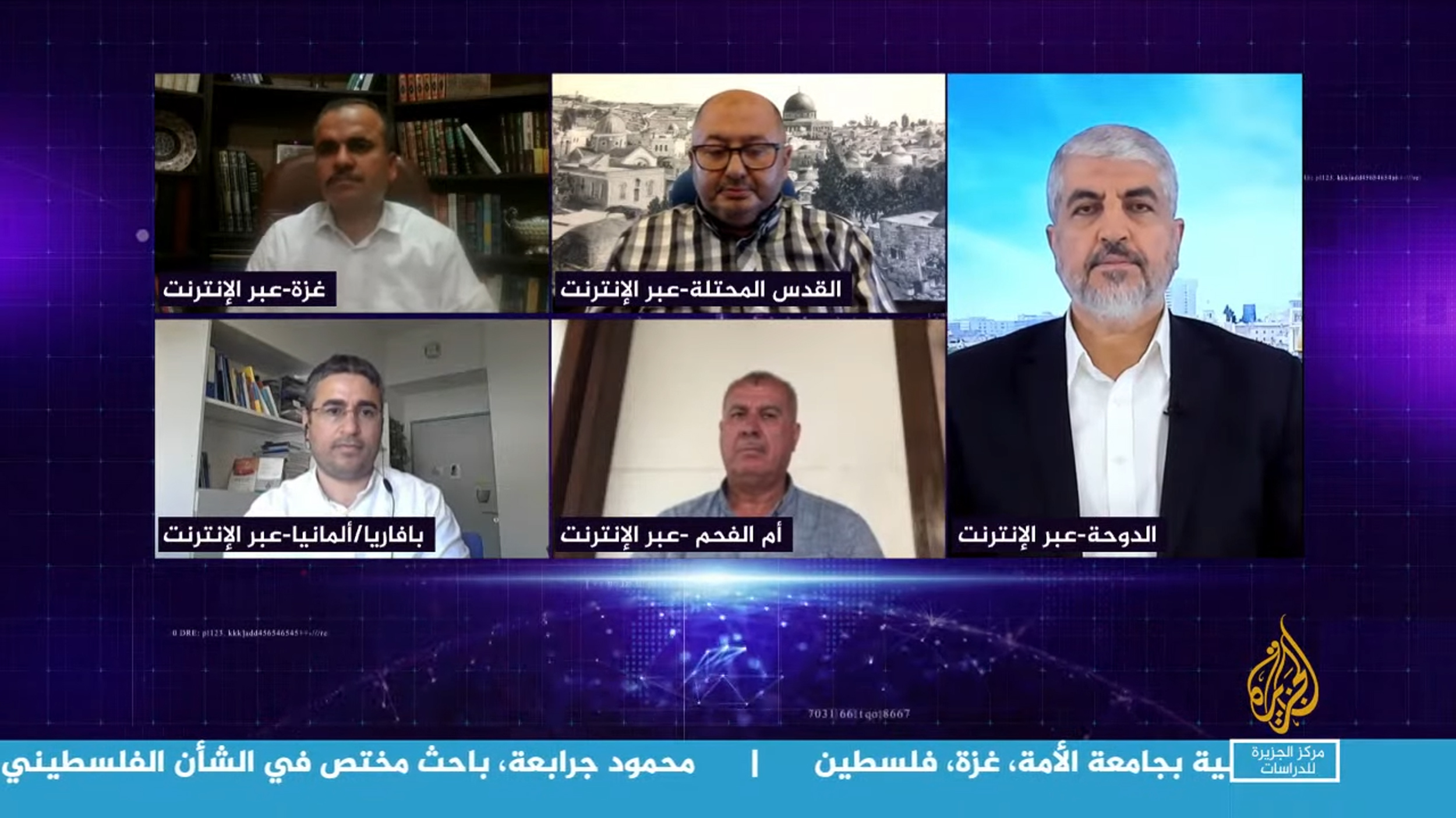
A webinar hosted by Al Jazeera Centre for Studies and Al Jazeera Mubasher on Thursday, 20 May 2021, under the title, “The Palestinian Cause on the 73rd Anniversary of Al Nakba,” concluded that the outburst of violence in Jerusalem and the resulting missile strikes by the Palestinian resistance against Tel Aviv restored unity among the Palestinian people regardless of their backgrounds and orientations. It also asserted that the dream of liberating Palestine is now possible as the resistance has acquired arms that can damage the Israeli depth.
The webinar pointed out that the Palestinian cause that shocked the consciences of people around the world has become in dire need of a new Palestinian leadership that is capable of dealing with new realities and that the political investment of this outburst at the Palestinian and international levels has become a national necessity. Moreover, it indicated that what distinguishes the current Palestinian outrage from its previous counterparts is that it succeeded in relaying four messages to Israel and the world. The first of which is that Jerusalem and al-Aqsa mosque are a red line that the Palestinians will not allow to be crossed, and that resistance, now that it has become this equipped, will prevent anyone and anything from harming this holy city and the blessed mosque.
The second message is that the Palestinian cause is a single cause and that Israel’s targeting of Jerusalem at one point and the West Bank or the Christian component of the Palestinian people at another is over now that the cause is a unified one with various subtitles – the land, the people, the holy places, the right of return, the prisoners, resistance, the siege on Gaza. All of these are part and parcel of the cause and support each other within the framework of a single battle.
The third message, however, is that the Palestinian people are not tired of struggle despite their difficult circumstances, division and the numerous pains of the Arab and Islamic nation.
The fourth message is that the Palestinian people’s current resistance confirmed that the stakes made by Israeli leaders for internal political gain will no longer be at the expense of Palestinian blood but at their own.
On the characteristics that distinguish the current outburst, the speakers indicated that it unified the Arab and Islamic nation and awakened the popular conscience globally to an unprecedented degree due to various reasons. These include that the theme of the battle this time is Jerusalem and al-Aqsa and it coincided with the last ten days of Ramadan, both of which sufficed to unite Muslims around the world and have them back the Palestinian people in their struggle to defend holy sites on behalf of the Islamic nation.
Another characteristic that distinguishes the outburst of violence is the involvement of the Palestinian people from all backgrounds in it whether in the West Bank, Gaza, the refugee camps or the cities and towns of the green line. This comes in addition to the fact that the resistance proved this time that Israel is a fragile entity that can be defeated and no longer invincible or feared.
Furthermore, the current Palestinian outrage pushed the official Arab position to become more positive and interactive than before, especially after Arab countries observed the performance of the resistance and the unity in conjunction with Israeli instability and popular Arab and international circumvention, leading to a bolder position.
There is another reason the webinar pointed out during its mention of the motives behind the positive Arab reaction this time. That is that some Arab countries that were harmed substantially by Israeli policies and positions found an opportunity to retaliate against Israel. These policies and positions include Israel’s interference, according to Khaled Meshal, in the Ethiopian Renaissance Dam and Israel’s pursuit to create a canal to replace the Suez Canal; undermine the Egyptian role; eliminate the Jordanian Hashemite guardianship of Jerusalem and Islamic and Christian holy places; and make concerted effort to preoccupy the region with its crises, crumble its social fabric, and tamper with civil peace. All of this caused the Arab position to improve and hope for the future to increase as Arab leaders are championing not only the Palestinian cause but also themselves and Arab national security.
Moreover, the webinar revealed that there is some positive change in the US and European positions as demonstrated by Washington and other Western capitals’ effort to reach a ceasefire to save Israel from its dilemma. This is based on new rules for political action, especially on the part of the United States, to manage the Palestinian-Israeli dossier under the Biden administration.
The webinar was broadcast on Al Jazeera Mubasher and live-streamed on AJCS’s digital platforms. The speakers participating in it were Khaled Meshal, head of Hamas in diaspora; Adnan Abu Amer, professor of political science at the University of the Ummah in Gaza; Mahmoud Jaraba, researcher specialised in the Palestinian issue; Naser Al-Hadmi, Head of the Jerusalem Anti-Judaisation Committee; and Mohammed Baraka, Head of the Supreme Follow-Up Committee for the Arab masses in the occupied Palestinian interior.